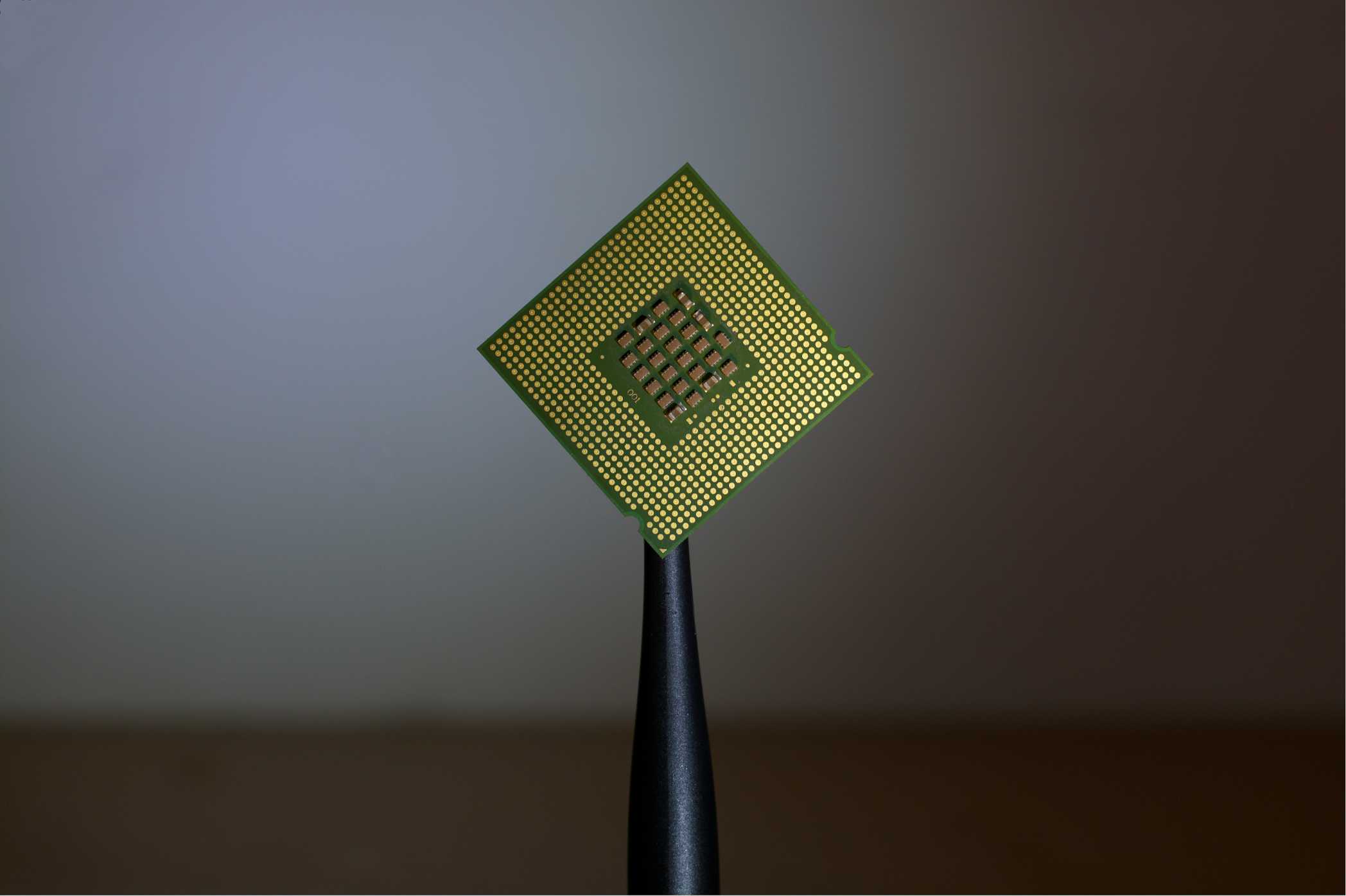Understanding Elon Musk's Stance on Web3 and Decentralization
A deep dive into Elon Musk's complex and often contradictory views on Web3, crypto, and decentralization. We analyze his tweets, public statements, and.

Introduction: The Enigma of Elon Musk and Web3
Elon Musk, the visionary entrepreneur behind Tesla and SpaceX, has a famously complex and influential relationship with the world of Web3 and cryptocurrency. His tweets can move markets, and his public musings often set the tone for mainstream conversations about the future of the internet. Yet, his stance on Web3-the concept of a decentralized internet powered by blockchains-is far from straightforward. It's a blend of enthusiasm, skepticism, and a healthy dose of trolling.
Is Musk a true believer in the decentralized future, or is he a pragmatist who sees crypto as just another tool? Does he champion the ideals of Web3, or is he simply using its hype to further his own goals? This article provides a comprehensive analysis of Elon Musk's statements, investments, and actions to build a clearer picture of his nuanced position on Web3. We will explore his vocal support for certain cryptocurrencies, his critiques of the current Web3 landscape, and how his vision for X (formerly Twitter) both aligns with and diverges from the core principles of decentralization.
Dogecoin: The People's Crypto
No discussion of Musk and crypto is complete without mentioning Dogecoin. His vocal, and often humorous, support for the meme-inspired cryptocurrency catapulted it from a joke to a top-10 digital asset. But what does his championing of Dogecoin say about his view of Web3?
A Focus on Payments
Musk's interest in Dogecoin seems rooted in his long-standing vision for a simple, low-cost payment system. Before PayPal became the behemoth it is today, Musk's original company, X.com, was focused on creating a global, internet-native financial system. In many ways, his support for Dogecoin is a continuation of that vision.
He has repeatedly praised Dogecoin for its low transaction fees and high throughput compared to Bitcoin, framing it as a more practical currency for everyday payments. Tesla began accepting Dogecoin for merchandise, a move that, while largely symbolic, demonstrated a willingness to integrate crypto into real-world commerce.
The Power of Memes and Community
Musk's embrace of Dogecoin also reveals his understanding of a key Web3 principle: the power of community and memes. Dogecoin's strength lies not in its technical sophistication, but in its vibrant, fun-loving community. Musk seems to appreciate that for a currency to be adopted by "the people," it needs to be approachable and culturally resonant. His "Doge to the Moon" tweets, while seemingly frivolous, tap into this powerful force of community-driven value creation. This suggests he understands that in Web3, narrative and culture can be just as important as code.
Bitcoin and Environmental Concerns
Musk's relationship with Bitcoin has been more turbulent. In early 2021, Tesla announced it had purchased $1.5 billion in Bitcoin and would begin accepting it as payment. This was seen as a massive institutional endorsement that helped fuel a major bull run.
However, just a few months later, Musk abruptly reversed course, announcing that Tesla would suspend Bitcoin payments due to concerns about the "rapidly increasing use of fossil fuels for Bitcoin mining." This single tweet sent the market into a tailspin and highlighted a key tension in his Web3 philosophy: the conflict between innovative technology and environmental sustainability.
This move was significant. It demonstrated that for Musk, the environmental impact of a technology is a primary concern that can override even significant financial investments. It also put the entire Proof-of-Work vs. Proof-of-Stake debate into the mainstream spotlight, forcing the industry to grapple with its energy consumption.
Skepticism of "Web3" as a Buzzword
While Musk is clearly engaged with cryptocurrencies, he has expressed deep skepticism about the term "Web3" itself, often viewing it as more of a marketing buzzword than a concrete reality.
In a series of tweets in late 2021, Musk questioned the decentralization of the current Web3 ecosystem, famously asking, "Has anyone seen web3? I can’t find it." He pointed out that most Web3 applications are still reliant on centralized infrastructure, particularly the cloud providers Amazon Web Services (AWS) and Infura. This critique, while pointed, is shared by many within the industry. It highlights Musk's engineering-first mindset: he is less interested in the marketing narrative and more interested in whether the technology actually lives up to its promises of decentralization.
His criticism suggests he believes that the current iteration of Web3 has not yet achieved the true decentralization it claims. He seems to be waiting for a more robust and genuinely decentralized infrastructure layer to emerge before he fully buys into the "Web3" label.
X, The "Everything App": A Centralized Vision for a Web3 World?
Perhaps the most telling insight into Musk's thinking is his vision for X. He has repeatedly stated his goal to turn the social media platform into an "everything app," a single application for communication, payments, content creation, and more.
This vision has elements that overlap with Web3 ideals:
- Creator Monetization: Musk has been a vocal proponent of empowering creators and allowing them to monetize their content directly, a core promise of Web3.
- Freedom of Speech: His self-proclaimed "free speech absolutism" aligns with the Web3 ethos of censorship resistance.
- Payments Integration: His desire to integrate payments directly into the app mirrors the seamless, peer-to-peer nature of crypto transactions.
However, his approach is fundamentally centralized. The "everything app" would be controlled by a single company, X Corp. This is a direct contrast to the Web3 vision of a decentralized ecosystem of composable protocols. Musk seems to believe that a better user experience and faster innovation can be achieved through a centralized, top-down approach, even if it incorporates some Web3-like features. He is building a walled garden, albeit one with some decentralized furniture.
Conclusion: A Pragmatic Skeptic with Decentralized Leanings
So, what is Elon Musk's true stance on Web3? He is not a Web3 maximalist, but he is not a complete skeptic either. He is a pragmatic engineer who is fascinated by the potential of decentralized technology but critical of its current limitations.
His philosophy can be summarized as follows:
- Utility over Ideology: He is more interested in what a technology can do than in its ideological purity. He supports Dogecoin because he sees it as a potentially useful payment system, not because of its decentralized credentials.
- Sustainability is Non-Negotiable: He will not support technologies that he believes are environmentally harmful, as demonstrated by his stance on Bitcoin mining.
- True Decentralization is Still Missing: He is skeptical of the "Web3" label because he sees the current ecosystem as being too reliant on centralized infrastructure.
- A Belief in Benevolent Centralization: His vision for X suggests he believes a centralized platform can deliver a better product experience for users, even if it borrows concepts from Web3.
Elon Musk is not waiting for the decentralized future to arrive; he is trying to build his own version of it. His approach is not that of a Web3 purist, but of a pragmatist who is willing to use any tool-centralized or decentralized-to achieve his ultimate goal of accelerating human progress. His continued engagement, however critical, ensures that he will remain one of the most important and unpredictable figures shaping the future of the internet.
The Web3 Opportunity
The Web3 sector is experiencing explosive growth, with demand far outpacing supply for qualified talent. Unlike traditional tech, Web3 offers unique advantages: higher compensation, equity opportunities, fully remote roles, and the chance to work on transformative technology.
Market Context
The Web3 job market has fundamentally different dynamics than Web2:
Compensation: Web3 roles typically pay 20-40% higher than equivalent Web2 positions, with significant bonus and equity components.
Remote-First Culture: Most Web3 organizations operate fully or primarily remote, offering flexibility that's rare in traditional tech.
Growth Trajectory: Career progression happens faster in Web3 due to rapid company scaling and talent shortage.
Equity Upside: Token and equity packages are standard, offering significant wealth-building potential.
Step-by-Step Transition Strategy
Step 1: Build Web3 Knowledge Foundation
Spend 4-8 weeks learning blockchain fundamentals. Understand:
- How blockchain technology works
- Different blockchain architectures
- Smart contracts and their use cases
- DeFi, NFTs, and DAOs
- Current Web3 ecosystem and key players
Step 2: Learn Relevant Skills
Depending on your target role:
- Engineers: Solidity, JavaScript/TypeScript, Web3 libraries (ethers.js, web3.js)
- Product Managers: Token economics, protocol governance, user growth in Web3
- Business Development: Market analysis, partnership strategy, regulatory landscape
- Community/Operations: Community building, Discord management, governance
Step 3: Build Your Portfolio
Create tangible proof of your Web3 expertise:
- Complete open-source contributions to Web3 projects
- Build a small DApp or smart contract
- Write about Web3 topics on Medium or Twitter
- Contribute to DAOs or community projects
- Participate in hackathons
Step 4: Network in Web3
The Web3 community is incredibly accessible:
- Join Discord communities of projects you're interested in
- Attend Web3 conferences (Consensus, Devcon, ETHDenver)
- Engage on Twitter/X with Web3 builders and thought leaders
- Participate in governance forums
- Join local Web3 meetups
Step 5: Apply Strategically
Target roles that leverage your existing expertise plus new Web3 knowledge:
- If you're a backend engineer, look for blockchain infrastructure roles
- If you're a PM, look for protocol product roles
- If you're in sales/business, look for Web3 business development
Real-World Success Stories
Developer to Smart Contract Engineer
Alex, a 5-year backend engineer at a FAANG company, spent 3 months learning Solidity while maintaining his day job. He contributed to an open-source protocol, caught the attention of a major DeFi project, and transitioned with a 50% salary increase and significant equity.
Product Manager in Web3
Jessica, a PM from traditional finance, leveraged her domain expertise in DeFi. Her understanding of financial products combined with Web3 technology made her incredibly valuable. She found a role at a leading DeFi protocol within 4 weeks.
Career Changer Success
Marcus left his corporate job to focus on Web3 for 6 months. Through consistent learning, networking, and portfolio building, he landed a role leading Developer Relations at a major blockchain platform, with compensation far exceeding his previous role.
Web3-Specific Challenges
Volatility Risk: The sector's volatility can impact job stability. Diversify and build emergency funds.
Regulatory Uncertainty: Regulations are still evolving. Choose projects with strong legal teams.
Due Diligence: Not all projects are legitimate. Research thoroughly before joining.
Learning Curve: The learning curve is steep, but the community is incredibly supportive.
FAQ
Q: Do I need to be a blockchain expert to work in Web3? A: No. Companies need diverse skills-marketing, design, operations, business development. Your existing expertise is valuable; you just need to learn the Web3 context.
Q: How much can I earn in Web3? A: Significantly more than Web2 equivalents. Base salaries are higher, plus signing bonuses, equity, and token packages. Realistic expectation: 30-60% increase from Web2 roles.
Q: Is it risky to transition to Web3? A: Like any emerging industry, there's risk. Mitigate by joining established, well-funded projects with strong teams and track records. Avoid speculation; focus on building.
Q: How long does the transition take? A: 2-6 months depending on your background and effort level. Engineers and product managers transition faster due to transferable skills.
Q: What if the crypto market crashes? A: The fundamental technology and use cases remain valid. Bear markets often create better opportunities-teams can focus on building rather than hype-driven growth.
Key Takeaways
- Web3 offers significant compensation, growth, and impact opportunities
- Transition takes 2-6 months with dedicated effort
- Your existing skills are valuable; focus on learning Web3 context
- Networking and portfolio building matter more than certifications
- Join established projects to mitigate risk
- The community is incredibly supportive and accessible


